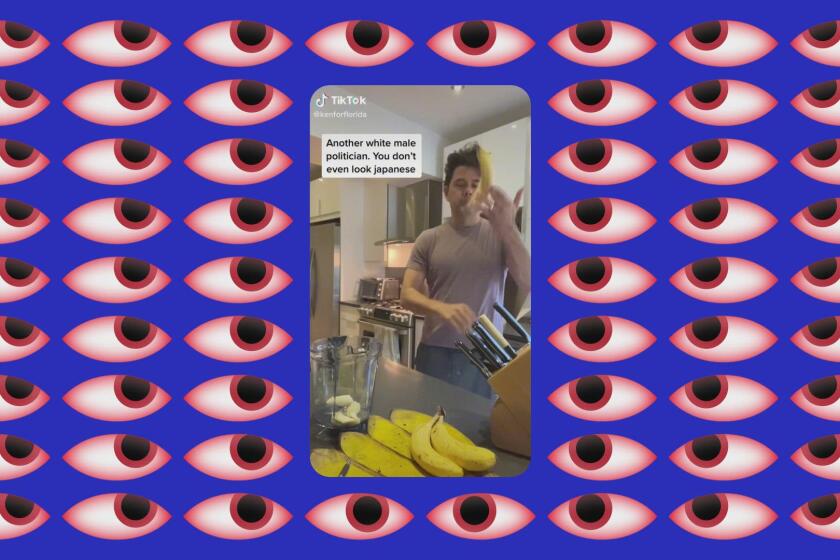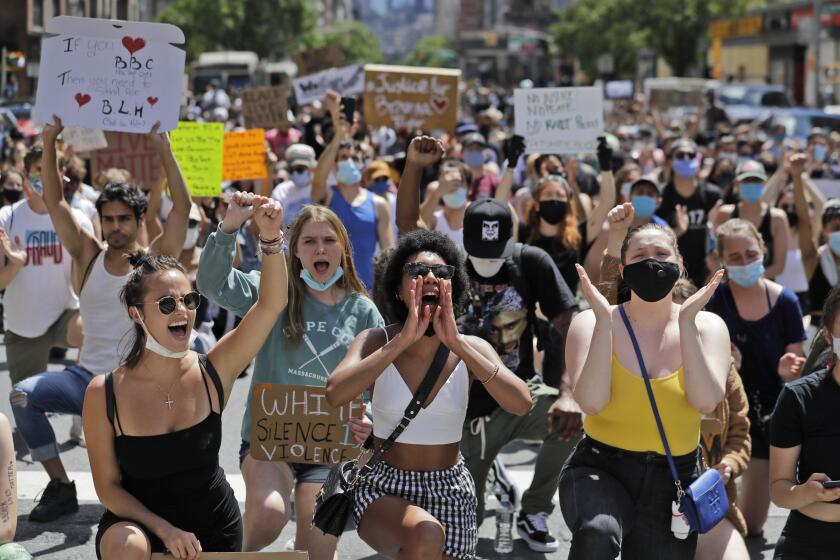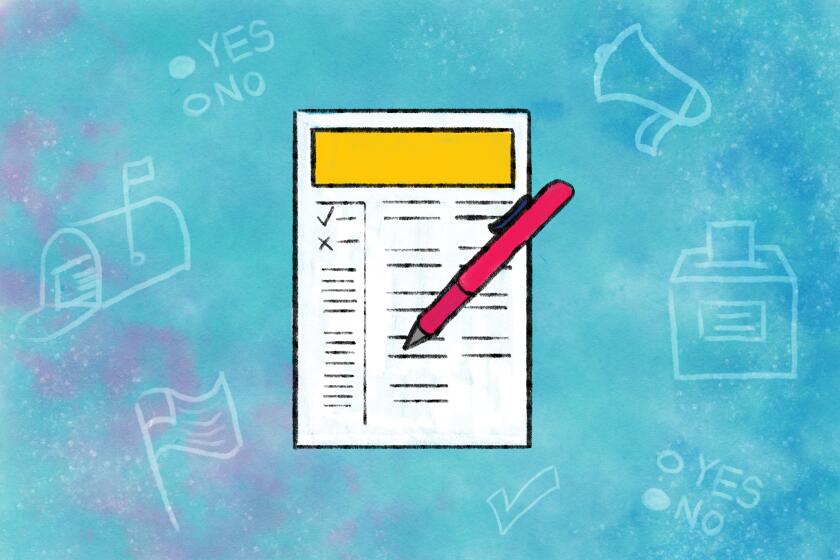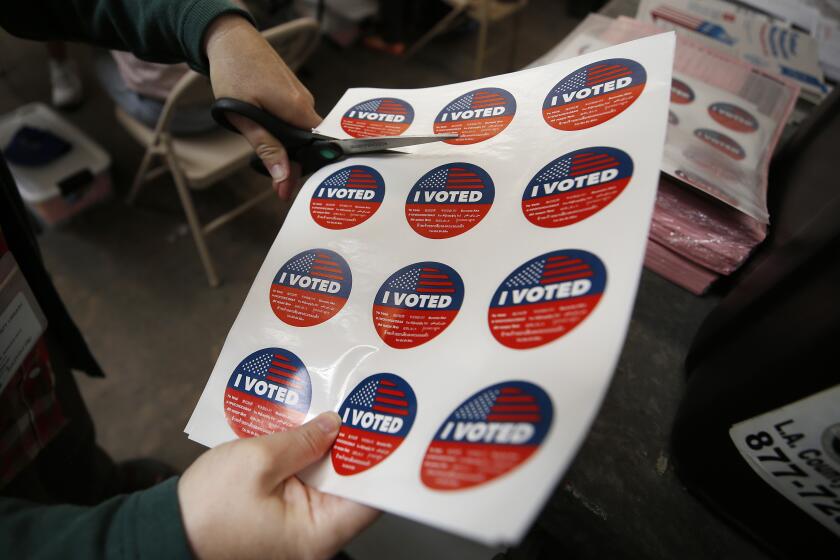Is it apathy or anxiety? What’s keeping some young Californians from voting
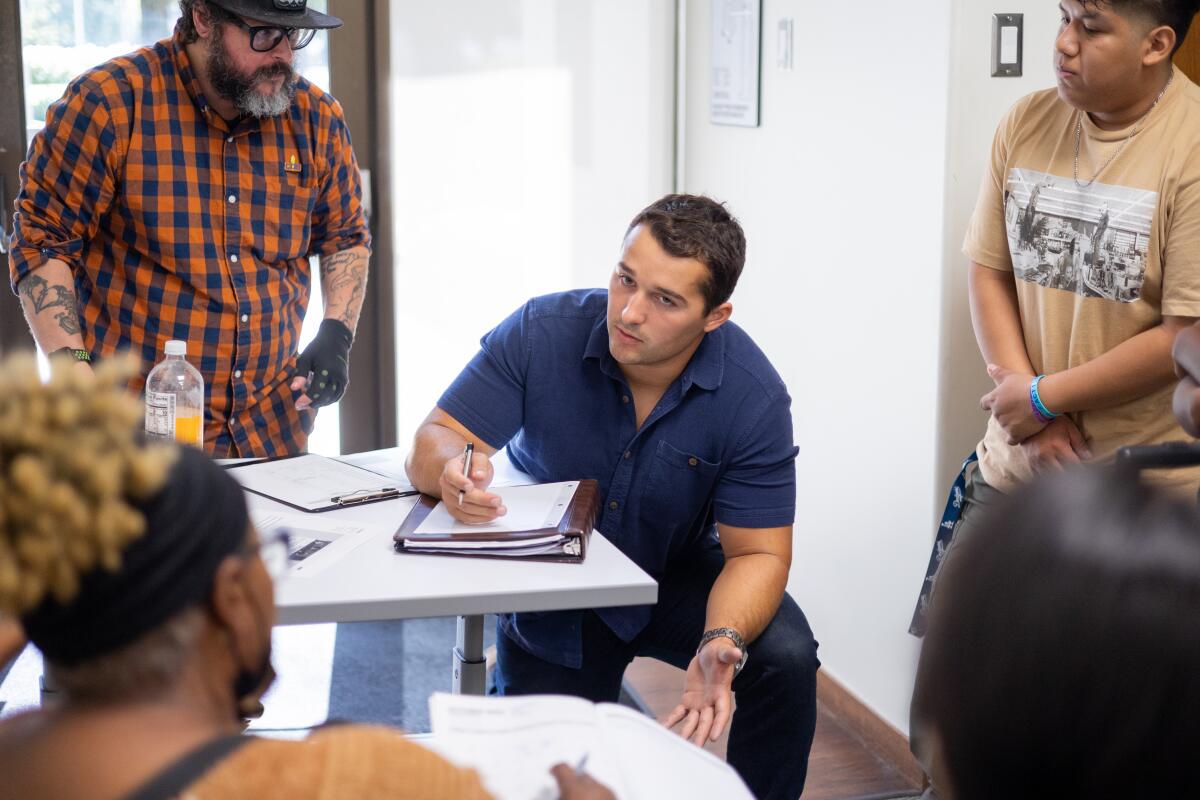
- Share via
VISALIA, Calif. — At 18, Luis Avila decided not to cast a ballot in the 2020 presidential election.
It wasn’t because he thought it was unimportant. Instead, the thought of voting for the first time left him overwhelmed.
“I don’t know how to do this,” Avila recalled telling his older brother. “Like, it’s a huge step. I don’t want to make the wrong decision.”
Young voters like Avila are often misperceived as too apathetic or too self-absorbed to care about elections. But rather than being dismissive of politics, some of the country’s least experienced voters say they feel unprepared to make such weighty choices.
“If I can’t even get to school on time, or I can’t make my bed in the morning ... then why should I be able to go make a big decision at a voter’s booth?” said MacIntyre Garbani, who cast his first vote in 2016 only under pressure from his parents. He was uncomfortable with the thought that his choice could affect others, he said, gesturing toward classmates at the College of the Sequoias in Visalia.
This sense of paralysis is a key, but underappreciated, dynamic among this crucial voting bloc of 18- to 29-year-olds, whom politicians tend to court with cringeworthy social media stunts.
Will political candidates tap into youth culture on TikTok for the midterm elections? Or will they come off like the ‘How Do You Do, Fellow Kids?’ meme?
It’s a sentiment pollsters pick up time and again. Oftentimes young voters say they didn’t have enough information or campaigns didn’t contact them, said Wasay Rasool, a lead strategist for Avalanche Insights, an information technology company that conducts polls.
Rasool and other experts say voters would be better served by a more robust civic education, and by politicians visiting campuses and offering up strong and savvy social media presences to highlight issues that directly affect young people.
Rasool boiled it down to the “confidence piece — knowing enough to actually take action to actually get out there and vote.”
But the problem isn’t just intimidation. For about 35% of young people, the biggest barrier to voting is politicians not delivering on the issues that most resonate with them, according to a national poll Avalanche Insights recently conducted with Rise Inc., an organization that advocates for free college, and Voto Latino, a nonprofit that aims to galvanize Latino and Hispanic youth to vote.
Younger adults led and packed protests after the death of George Floyd, but whether that means increased turnout in November’s election is unclear.
When young people show up to vote, their impact is significant: Turnout among voters younger than 30 surged in 2018, when they helped Democrats take control of the House, and in 2020, when they were instrumental to Joe Biden winning the presidency.
The annual Harvard Youth Poll, released in April, found that nearly half of young Americans believe the country is headed in the wrong direction. Yet the poll also forecast that youth turnout is expected to meet 2018’s record-breaking turnout.
This midterm election, Democrats are at risk of losing control of Congress. Their slender hopes of hanging onto the House could hinge in part on two highly competitive Central Valley races. In Merced County and the surrounding area, Democratic Assemblyman Adam Gray is competing with Republican farmer John Duarte for an open seat. To the South, Democratic Assemblyman Rudy Salas is vying to unseat Republican Rep. David Valadao in a district straddling Kern, Kings and Tulare counties.
If young adults as well as Latinos show up to vote, they could create an opportunity to elect the first Latino member of Congress representing the Central Valley, said political analyst Paul Mitchell. Salas is Latino; Valadao is of Portuguese ancestry.
Of the 3.5 million registered voters in the valley, about 21% are young voters, according to data Mitchell gathered.
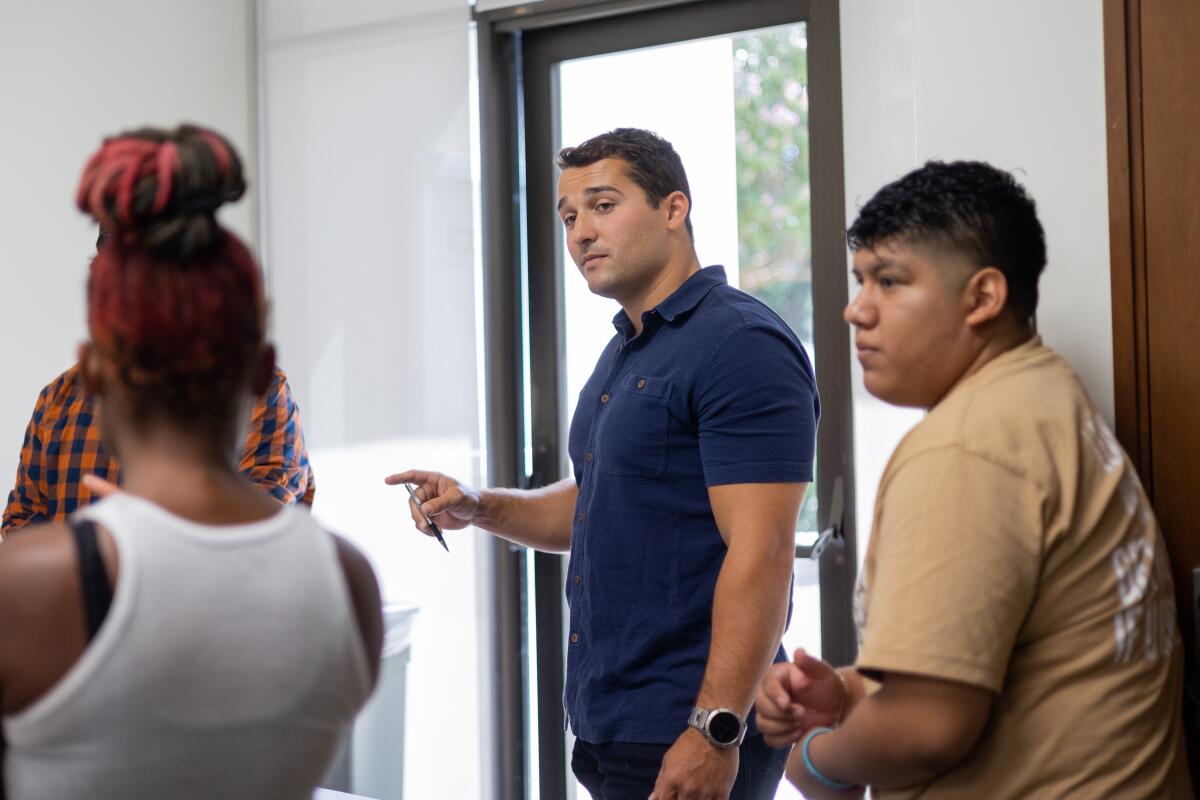
In the last few months, the overturning of federal abortion rights, high gas prices, the cancellation of some student debt, and major federal action on climate change have captured young voters’ attention. Recent studies have shown that grassroots movements such as Black Lives Matter and March for Our Lives made young voters more aware of their power at the ballot box.
“This is a voting bloc of young people who are really just very involved in their communities, and are really seeing the links clearly between what’s happening in their local community and the politics of who’s actually representing them,” said Jessica Ronan, program manager for the Center for Youth Political Participation at Rutgers University.
Yet this daunting sense of responsibility could still be a barrier for newer voters, especially in places like the San Joaquin Valley, which is beset by widespread poverty and inequities in education. Those challenges make youths acutely aware of the stakes that come with voting.
Many of these young adults are the first in their family to vote after their parents migrated from Mexico to work in agriculture, Ronan said, so they don’t get much guidance on the mechanics of voting.
“I think that comes with ... a little bit of pressure,” especially because young people understand the impact their vote could make at home, she said.
California’s 2022 election ballot includes races for governor, attorney general, Legislature and Congress, local contests and statewide propositions.
Discussing politics puts Erika Yanez on edge. The 20-year-old college student has seen the rush of political campaign ads on TV. She is alarmed that the winter season in the valley has shortened over the years. She cares how policies might affect her goal of becoming a dental hygienist.
The Tulare resident said she registered to vote in high school, but didn’t go to the polls in the last presidential election. Instead, she said, she left that responsibility to her older sister.
Yanez remains cautious about forming political opinions. Her parents didn’t talk about politics when she was growing up, and her high school senior class on economics and U.S. government was cut short by the COVID-19 pandemic.
Yanez’s shaky political foundation has left her frustrated this campaign season. “It’s hard for me to keep up,” she said, even though politics that affect her personally are important to her.
For many, politics rank low on the list of personal priorities. As teens graduate high school and venture into the next chapter of life, it’s common for them to think about whether they’ll move out of their parents’ home or what college they’ll attend, said Tom Holyoke, a political science professor at Cal State Fresno.
“Typically, once you have that worked out to some degree, then you start thinking about more abstract issues like ‘who should I vote for?’” he said.
Garbani, 25, now feels ready to shoulder the responsibility of voting; he finds himself wanting to know more about the propositions and congressional candidates he will see on his ballot. He plans to cross-check candidates’ claims with library databases, talk to trusted neighbors in Visalia and watch speeches.
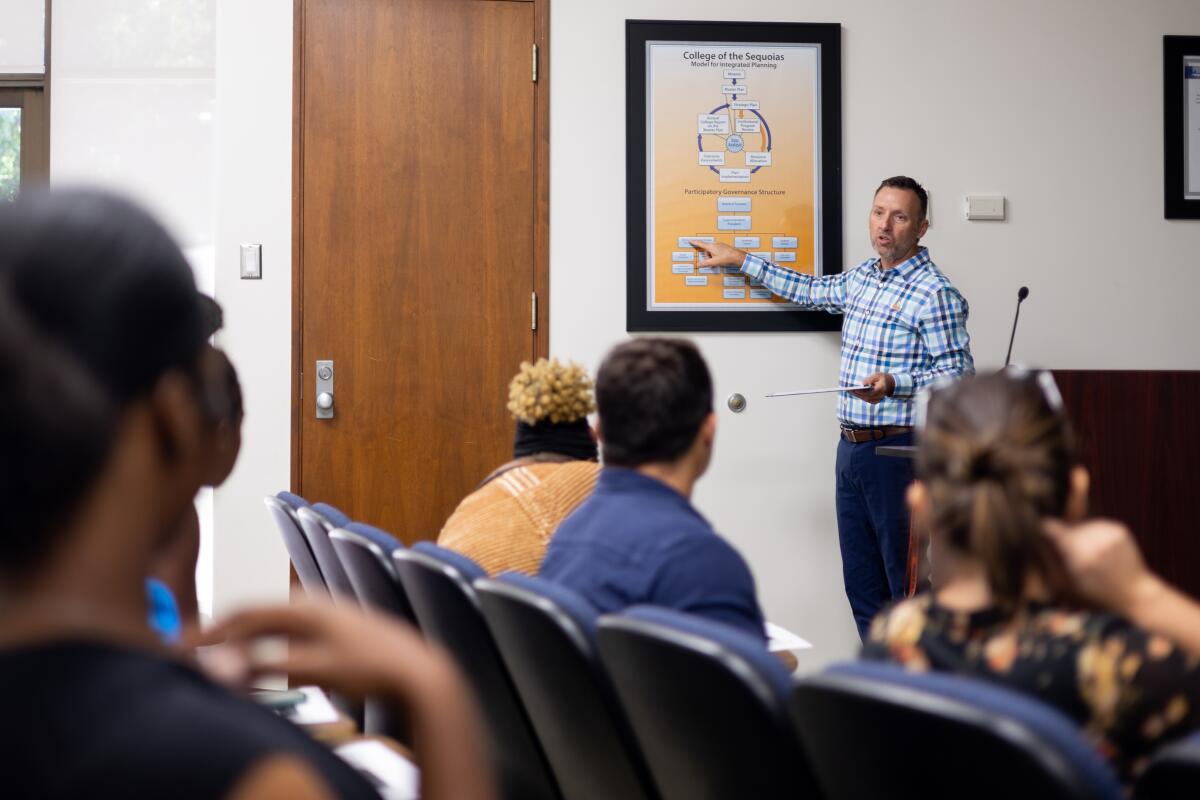
It’s often as teenagers become adults that they realize how events can directly affect them.
Amid a recent triple-digit heatwave blanketing the valley, Angel Sanchez sought relief underneath a tree after working on a project with peers. He faced a five-hour gap before his next class at College of the Sequoias. Returning home to Corcoran, nearly 30 miles south of the Visalia-based school, for a few hours was not an option timewise or financially.
The high cost of gas is motivating Sanchez, 21, to vote in this election. The no-party-preference voter said $15 used to buy enough gas for him to drive his 2007 Mustang GT to work at Target. The cost has since doubled to about $30, he said.
Sanchez said he “should have voted” in the presidential election even though he doesn’t truly feel represented by either party.
California’s 2022 primary election is Tuesday. Here’s how to cast a ballot.
Avila’s interest in politics was piqued last year when redistricting got underway. He worried how new boundaries would affect his home of Farmersville.
Then he started thinking about his father, a fieldworker toiling in unpredictable weather. Now his sense of responsibility for his parents has motivated him to step up and vote, because he’s no longer thinking about just himself.
“My dad’s getting older,” he said. “Obviously, I’m going to have to take care of him.”
More to Read
Get the L.A. Times Politics newsletter
Deeply reported insights into legislation, politics and policy from Sacramento, Washington and beyond. In your inbox twice per week.
You may occasionally receive promotional content from the Los Angeles Times.

